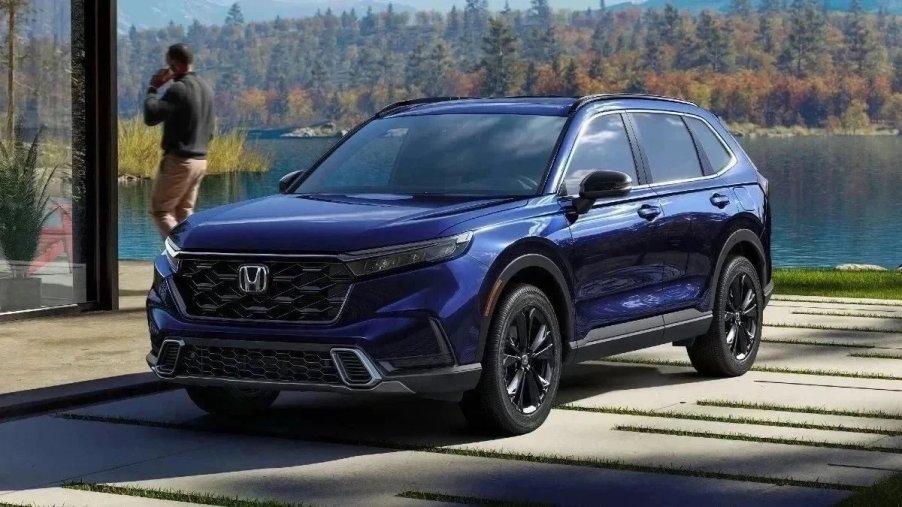
4 Most Common Reasons for Honda CR-V Check Engine Light
The Honda CR-V is one of the most popular compact crossover SUVs available. Drivers like its good handling, practicality, high fuel economy, and many useful features. However, like any model, issues can crop up, resulting in a check engine light. Here are the four most common reasons for a check engine light in the CR-V. We also see if it’s a reliable compact SUV.
What causes the check engine light to come on in the Honda CR-V?

The Honda CR-V’s check engine light on the dashboard functions as a warning indicator. There are sensors and systems that monitor various parts of the compact SUV. And when an issue is detected, the check engine light illuminates. AutoNation Honda and RepairPal detailed the most frequent reasons — based on owner complaints.
Here are the four most common check engine light causes for the Honda CR-V:
- Problem with the emissions system
- Faulty sensor: mass air flow or oxygen
- Issue with catalytic converter
- Loose or broken gas cap
Many CR-V models are not affected by these issues — and they don’t necessarily indicate that it’s not reliable. However, these are the most frequent reasons for a check engine light in the compact SUV. To gain a better understanding of these causes, let’s cover them in greater detail.
Emissions system problem is the most common reason for a Honda CR-V check engine light

The most common reason for a Honda CR-V check engine light is a problem with the emissions system. Symptoms associated with this problem include engine failure, shifting complications, slower acceleration, and jerking. If the compact SUV experiences any of these symptoms, there’s a good chance the emissions system is the cause of the check engine light.
Faulty mass air flow sensor or oxygen sensor
The second most frequent reason for a Honda CR-V check engine light is a faulty sensor. This could be either the mass air flow sensor or the oxygen sensor. The mass air flow sensor sometimes fails when exposed to particle-rich or dirty air. With the malfunctioning mass air flow sensor, the engine can misfire. It can also result in damage to the engine, lower gas mileage, and weaker performance.
A malfunctioning oxygen sensor is often the result of prolonged exposure to hot exhaust fumes. The importance of the oxygen sensor is how it provides critical information about the air-fuel mixture to the electronic control unit (ECU). And if it malfunctions, it can cause the ECU to supply the compact SUV with either too much or too little gasoline. With too much gasoline, smoke and a foul odor can result, while too little can cause the engine to fail.
Issue with catalytic converter
The third most common thing that can cause the Honda CR-V check engine light to illuminate is an issue with the catalytic converter. The function of a catalytic converter is to convert pollutants from the emissions system into harmless gases. Problems for a catalytic converter include contamination, clogging, and overheating. If the catalytic converter is damaged or malfunctions, it can result in engine failure, sluggish performance, and more air pollution.
Loose or broken gas gap
The other frequent reason for a Honda CR-V check engine light is a loose or broken gas cap. Adverse effects of a loose or broken gas cap include lower gas mileage, the release of fuel vapors, and an increase in harmful vehicle emissions.
Is the Honda CR-V a reliable compact SUV — and is it expensive to repair?
These check engine light issues might give the impression of unreliability. However, overall, the Honda CR-V is a reliable compact SUV. RepairPal gives it an “excellent” reliability rating of 4.5 out of five. The automotive site ranks it second in a field of 26 compact SUVs.
Also, the CR-V is relatively inexpensive to repair. Its average annual repair cost is $407, which is lower than the $521 yearly average for compact SUVs and $652 for all types of vehicles.



